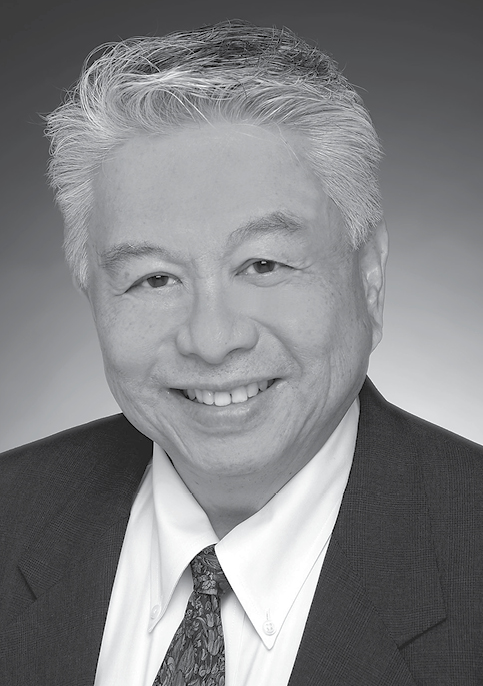This article originally appeared in The Bar Examiner print edition, March 2017 (Vol. 86, No. 1), pp 2–3.
 By the time you read this, the February 2017 bar examination will be behind you. I hope that it was uneventful and that everything went smoothly.
By the time you read this, the February 2017 bar examination will be behind you. I hope that it was uneventful and that everything went smoothly.
This year is quickly proving to be extremely busy, exciting, and challenging for me as I fulfill my leadership responsibilities as chair of the National Conference of Bar Examiners. While the NCBE office enjoyed a brief respite during the holidays, we all knew much work lay ahead. We are living through a period of transition at so many levels, perhaps starting at the top with a change of political parties and a new president of our country intent on quickly implementing his campaign promises. Within our NCBE family we are concerned over who will succeed Erica Moeser as our new president before the end of this year. While selecting her replacement is the paramount focus of the NCBE Board of Trustees, the business of operating NCBE continues, along with the work of the numerous committees that help fulfill NCBE’s mission.
This past December, the Editorial Advisory, Long Range Planning, and Diversity Issues Committees met in New York City. All three meetings were very productive in fulfilling the respective charges I had assigned to the committees for 2016–2017. The Editorial Advisory Committee, chaired by Hon. Phyllis Thompson of the District of Columbia and staffed by Claire Guback, NCBE Manager of Publications and Editor of the Bar Examiner, discussed many promising article ideas for future issues of this publication. The Long Range Planning Committee, co-chaired by Bucky Askew of Georgia and David Boyd of Alabama, was tasked to explore interest by jurisdictions in transitioning to direct payment for tests and services to NCBE from candidates. Following a poll taken of the jurisdictions on the direct-pay option, the Committee decided that NCBE should not pursue it. The Committee also decided to repeat its earlier recommendations to move forward with the creation of a Task Force on the Future of the Bar Exam and to update the NCBE Job Analysis. (The job analysis, completed in 2012, was designed to determine what new lawyers do, and what knowledge, skills, and abilities newly licensed lawyers believe that they need to carry out their work.)
The Diversity Issues Committee, chaired by Fred Yu of Colorado, with NCBE staff assistance from Associate Director of Testing Joanne Kane, Ph.D., and Research Psychometrician Andy Mroch, Ph.D., addressed comprehensively an agenda that was expanded from prior years to now include sexual orientation in addition to race and ethnicity. Issues brought to light by the LGBT movement affecting candidates, examinees, and lawyers have expanded the gender diversity issue beyond the traditional male versus female concerns, and the Committee reviewed articles it had collected on the topic that might further guide research on the issue as it pertains to the bar admissions community. The Committee also discussed the impact of the ABA’s approval of stricter standards for accredited law school bar passage rates (Standard 316) on diversity concerns and on the legal profession. Joanne and Andy provided a summary of NCBE research and analysis related to demographic groups, with results of studies conducted in New York. It was also reported that, with New York’s recent adoption of the Uniform Bar Examination, a new study is being undertaken by staff on behalf of the New York Board to assess pass rates for different demographic groups before and after UBE adoption in New York.
In January, I attended meetings held in Tucson, Arizona, of the MEE/MPT Policy Committee, the MPRE Policy Committee, and the Special Committee on the Uniform Bar Examination. Under the leadership of co-chairs Diane Bosse of New York and Gordon MacDonald of New Hampshire, and with staff assistance from Judy Gundersen, NCBE Director of Test Operations, the MEE/MPT Policy Committee efficiently and successfully tackled its charge. One of its goals was to assess MEE and MPT test development and administrative practices with an eye toward increasing efficiency while maintaining question quality. To that end, Gundersen presented an overview of the test development process and the security measures undertaken for materials during test development and administration. The level of vetting of proposed test items and the number of reviews of each item, including reviews by external reviewers and pre-testing procedures, are nothing short of impressive. The Committee also considered the current use and format of the February and July Grading Workshops, given their increased attendance due to the adoption of the UBE by more jurisdictions and the resulting logistical challenges for both in-person and conference-call attendance; committee members shared many good suggestions for ways to continue improving the workshops for all participants in light of increased attendance. The Committee also discussed developing grading guidelines for jurisdictions to include relative grading procedures for their graders.
Chair Pat Dixon of California and NCBE’s new MPRE Program Director, Nina Chang, provided MPRE Committee members with the new MPRE answer sheet in use, which no longer requires examinees to handwrite the certifying statement that they are required to sign. Failure by the examinee to sign the printed certifying statement will result in the examinee’s score being withheld. The Committee also discussed ways to improve security after MPRE test administrations, as well as the potential move to computer-based testing for the MPRE.
An impressive gathering of the Special Committee on the Uniform Bar Examination, co-chaired by Greg Murphy of Montana and Rebecca Thiem of North Dakota and staffed by Kellie Early, NCBE’s Chief Operating Officer, also took place in Tucson. A very positive dialogue ensued, with all members present reporting general satisfaction with the UBE. Among the topics discussed was that of minimum passing scores among UBE jurisdictions, which currently range from 260 to 284. Each UBE jurisdiction continues to have the authority to establish its own minimum passing score.
The NCBE Board of Trustees recently concluded its January meeting. We had a very full agenda. Thanks to the tireless efforts of fellow Board members who serve on various committees, as well as the hard work and dedication of NCBE’s professional staff, we managed to address all the items within the allotted meeting times. I am pleased to report that the Search Committee and our search consultant, Barbara Mayden, continue to work diligently to assist the Board in identifying Erica Moeser’s successor.
The Education Committee, chaired by Hon. Cindy Martin of Missouri and staffed by Ellen Embertson-Merrill, NCBE’s Educational Programming Coordinator, has been hard at work planning the 2017 Annual Bar Admissions Conference in San Diego on May 4–7. The program is simply outstanding, and enrollment appears filled to capacity, topping 400 registrants with more than 40 justices attending. I look forward to seeing many of you there.
`O wau nō me ka mahalo. I am yours respectfully,

Robert A. Chong
Contact us to request a pdf file of the original article as it appeared in the print edition.







